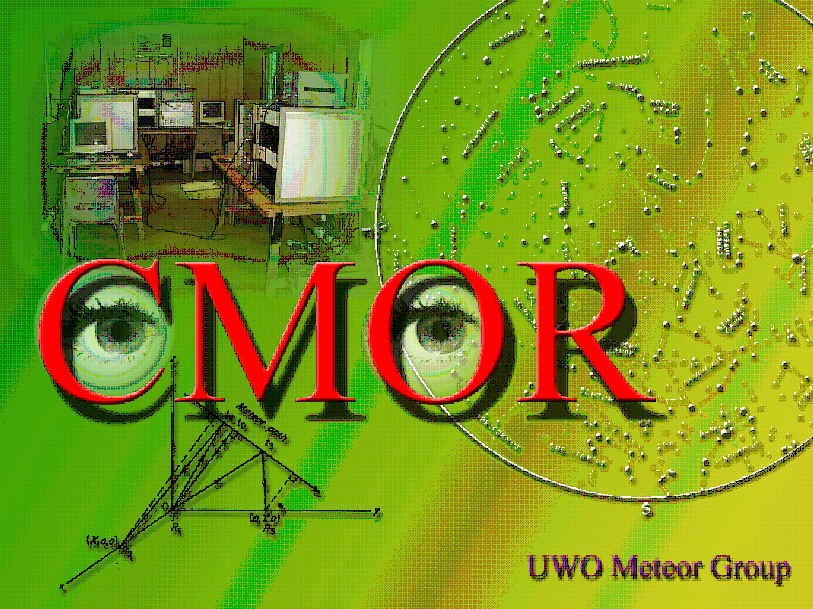The Canadian Meteor Orbit Radar
The Western meteor physics group operates a triple-frequency, meteor orbital radar 100 km from London (near Tavistock, Ontario) where we record ~2500 meteoroid orbits per day. CMOR is a multi-frequency HF/ VHF radar used to detect the ionized trails associated with ablating meteoroids. It has been in single-station operation (echoes) since 1999 and multi-station (orbits) since January of 2002. The radar produces data on the range, angle of arrival, and velocity/orbit in some instances. To the end of 2009 we have measured 4 million individual orbits
Scientific Questions Addressed by CMOR
How orbits are computed by CMOR
___________________________________________
Scientific Questions Addressed by CMOR
- The sporadic meteor background - flux, velocity, and radiant distribution
- Origin and evolution of interplanetary meteoroid population (comet vs. asteroid) -
Stream-parent body linkages
- Find and measure radar meteor showers and link orbits to original parents -
Interstellar meteoroids
- Flux and origin based on radar measurements of orbits - distinct sources? - Ablation studies of meteoroids
- What are the densities and likely chemical compositions of meteoroids?



